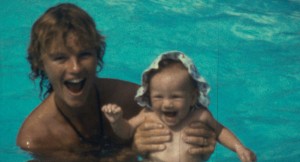Think about the last time you had write a resume, a cover letter, a bio—one small, scant paragraph to encompass your life. You may have struggled to capture the essence of you and felt unsatisfied. But the ability to shape a narrative relevant to your goals really matters. There is power in the well-crafted tale whatever your goal may be—to create a brand, sell a product, promote a cause, or even get a job. It’s something we noticed among the dozens of remarkable people we interviewed for our book. We were impressed not just by the stories they told, but how they told them.
Richard Gerrig, professor of psycholinguists at Stony Brook University who has researched the cognitive effects of narrative, explains how in the grip of a well-told story, we don’t just identify with the characters we “become part of their world and have a stake in the story.”

That’s just the effect actress and filmmaker Sarah Polley achieves in her recent documentary, “Stories We Tell.” Part-filmmaker, part-detective, Polley investigates the secrets kept by a family of storytellers. Interviewing and playfully interrogating a cast of characters of varying reliability, Polley explores the elusive nature of truth and memory as she unravels and recreates a central family mystery—with its infinite repercussions—that involves her late mother. Along the way, poetically, profoundly and with humor, Polley reveals myriad retellings of one family’s mythology that ultimately succeeds in revealing a much larger human story.
Many of the participants in the movie questioned Polley about why she was making the film—it’s just one family’s story, why would anyone else care? But as you walk out of the theater you get that wonderful effect of a well-made film—a head full of questions that inspires us to keep thinking and leaves us wanting more. Polley has not only chronicheld an amazing story, but told it masterfully well.
Buy “The Art of Doing” here. Signup for “The Art of Doing” free weekly e-newsletter. Follow us on Twitter. Join “The Art of Doing” Facebook Community. If you’ve read “The Art of Doing” please take a moment to leave a review here.
